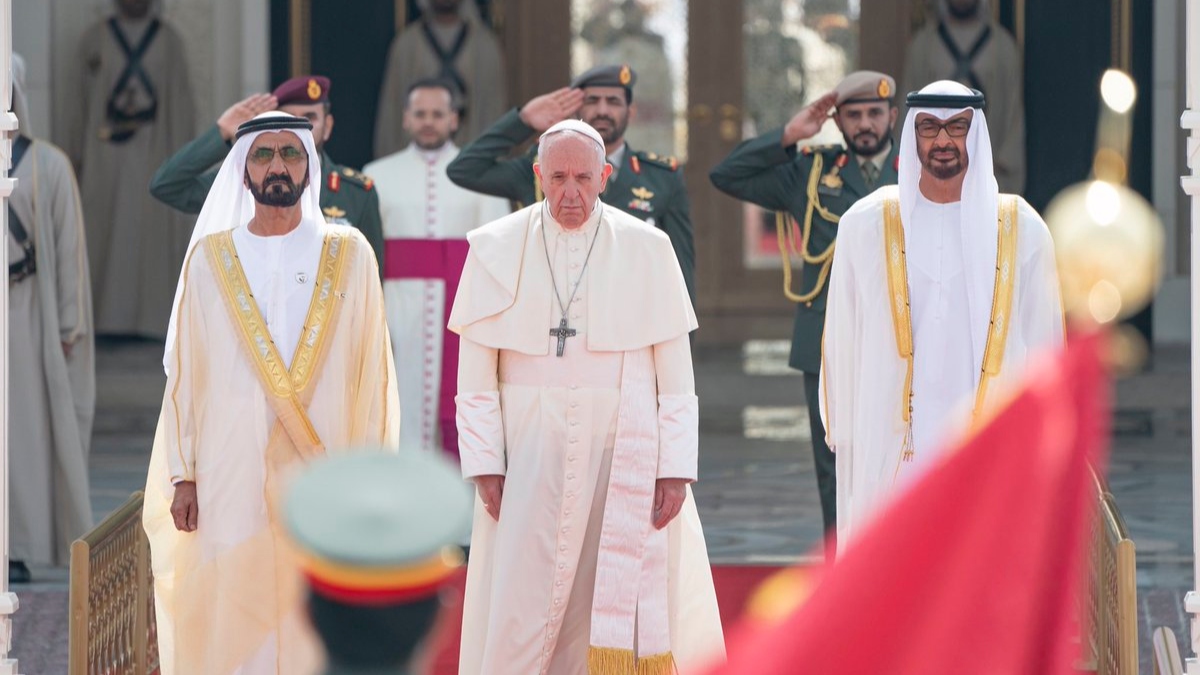As the world mourns the passing of Pope Francis, who died early morning on April 21, 2025, at the age of 88, many are reflecting on his remarkable legacy—including his historic visit to the United Arab Emirates in 2019. The visit marked the first time a pontiff stepped foot on the Arabian Peninsula, a moment that became a milestone for interfaith dialogue and religious tolerance in the region.
Pope Francis arrived in Abu Dhabi on February 3, 2019, welcomed warmly by Crown Prince Sheikh Mohamed bin Zayed Al Nahyan and Grand Imam of Al-Azhar, Dr. Ahmad Al-Tayyeb. His visit spanned three days, with a schedule focused on building bridges between Islam and Christianity and strengthening peaceful coexistence.
On February 4, he met with the Crown Prince at the Presidential Palace before participating in a private dialogue with the Muslim Council of Elders at Sheikh Zayed Grand Mosque. Later that day, he joined an interreligious gathering at the Founder’s Memorial during the Global Conference on Human Fraternity. It was at this event that Pope Francis and Dr. Al-Tayyeb signed the Document on Human Fraternity, a landmark declaration that called for peace, religious freedom, and the protection of human rights.
The following day, Pope Francis visited St. Joseph’s Cathedral to meet the Catholic community. The most iconic moment of his UAE trip came shortly after when he led a public Mass at Zayed Sports City Stadium. The celebration drew around 135,000 worshippers from different nationalities and faiths—the largest public Christian gathering ever held in the Gulf region. It was a moving symbol of unity and inclusivity in a predominantly Muslim country.
Beyond diplomacy and ceremony, Pope Francis used the visit to address urgent global concerns. He called attention to humanitarian crises in Yemen, Syria, Iraq, and Libya, urging for peace and dialogue over violence. His words carried weight, not just for Catholics, but for people of all faiths seeking hope in divided times.
Known as the first Latin American pope and the first Jesuit to lead the Church, Pope Francis championed humility, compassion, and reform throughout his papacy. From his election in 2013 following the resignation of Pope Benedict XVI, to his final years marked by frailty and health challenges, he remained deeply committed to serving the marginalized and modernizing the role of the Church in a rapidly changing world.
Today, as the Vatican confirms that “the Bishop of Rome, Francis, returned to the home of the Father,” many recall not only his spiritual leadership but also the powerful moments he created—like that unforgettable visit to the UAE, which forever changed how the region and the world viewed interreligious harmony.






